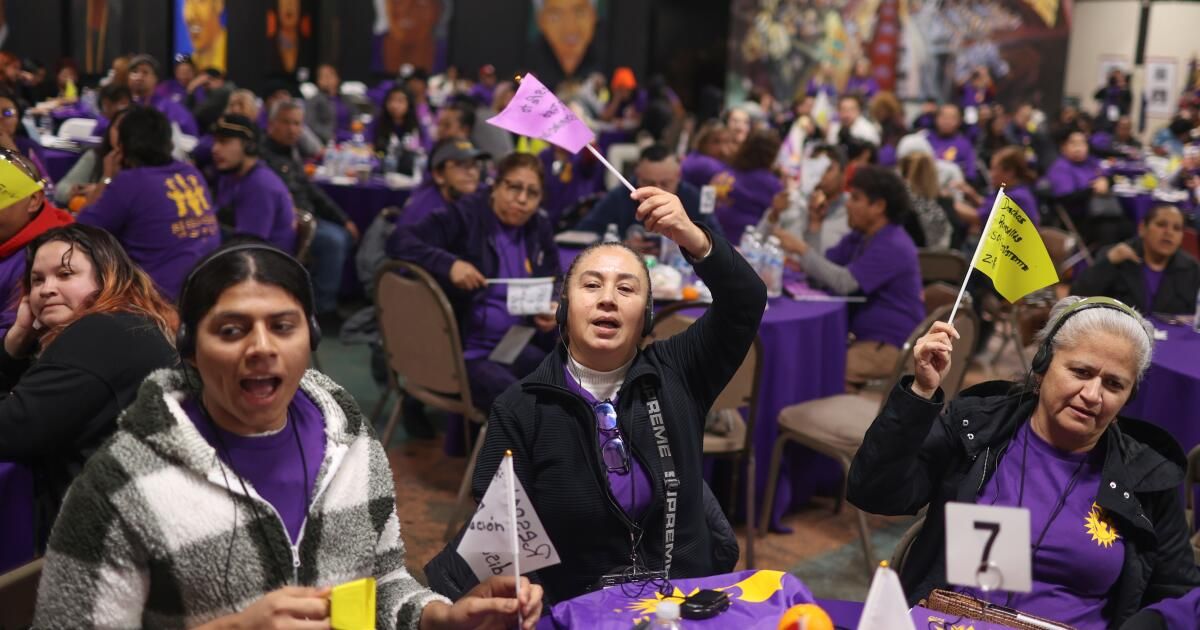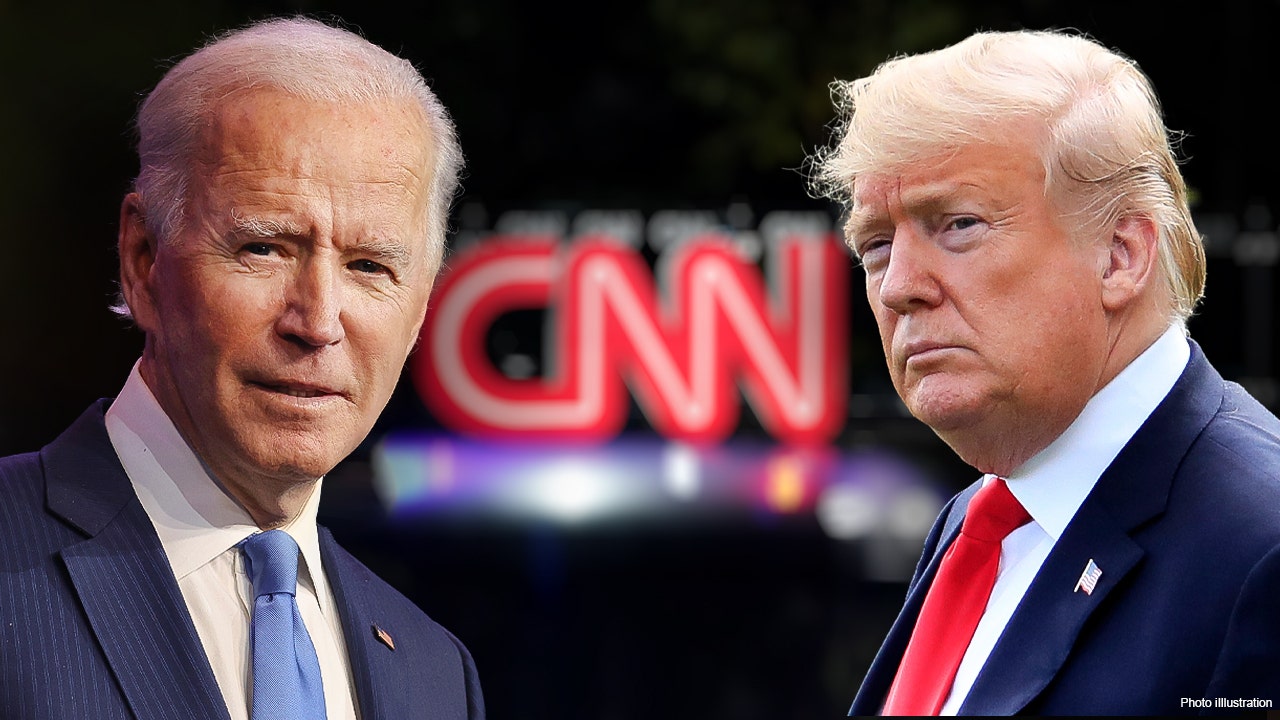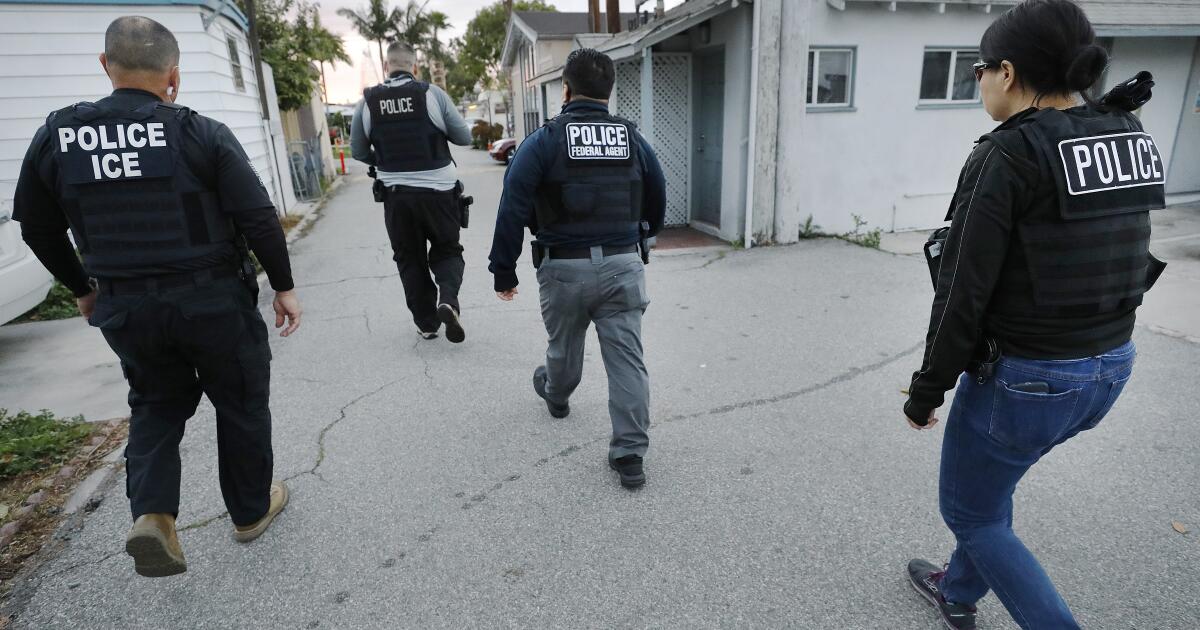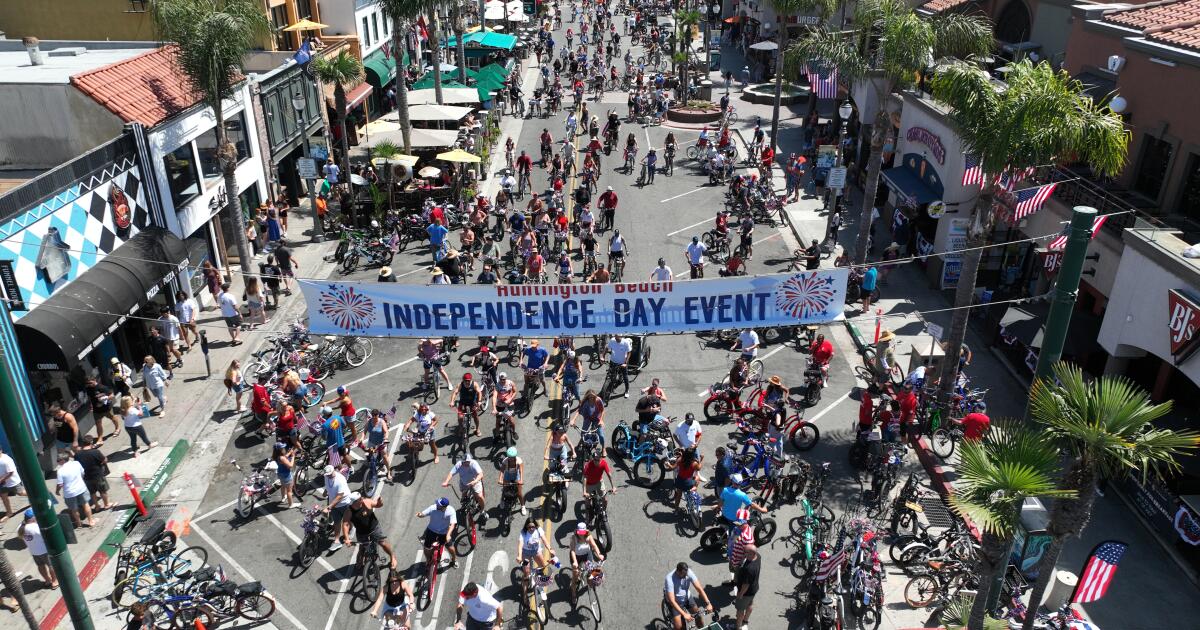Mysheka Ronquillo works as a cashier and cook at Carl's Jr. in Long Beach and earns $16 an hour. She expects a raise to $20 an hour in April, thanks to a new law signed by Gov. Gavin Newsom last fall.
The higher wages will help her pay for her 19-year-old daughter's school fees, but keeping up with her bills will still be difficult because of an unstable schedule that forces her to work 30 hours some weeks and 24 hours other weeks, she said.
“Gas isn't going down, rent isn't going down,” said Ronquillo, 41, who joined 350 other fast food workers at a rally at a Watts community center to kick off the state's newest labor organization. California Fast. Food Workers Union.
The union is a unique effort that will pave the way for more than half a million fast-food chain workers across the state to bargain as one sector, and could chart a course for other industries across the United States.
Backed by the powerful Service Employees International Union, the California Fast Food Workers Union is the culmination of years of employee strikes over issues including handling claims of sexual harassment, wage theft, safety and wages, such as the Fight for $15 movement to raise the minimum wage, organized by the SEIU in 2012.
“Led by Black and Latino cooks and cashiers, the California Fast Food Workers Union is setting a shining example of what is possible,” SEIU International President Mary Kay Henry said in announcing the union Friday.
The union outlined three priorities: annual wage increases, just cause protections to prevent employers from arbitrarily firing workers, and ensuring workers have predictable and sustainable schedules, without major changes to their hours.
The new organization is not a traditional union, but rather uses the model of a so-called minority union that allows workers to avoid the arduous process of organizing restaurant by restaurant through a formal election process certified by the National Labor Relations Board.
“This is a novel approach to organizing workers who have not previously been union members,” said Kent Wong, director of the UCLA Labor Center.
This organization gained strength during the pandemic, when essential workers were “on the one hand celebrated as essential workers… but in reality they were earning poverty wages and not truly respected at work,” Wong said.
Union pressures at Starbucks, Amazon, Trader Joe's stores and organizing among Uber and Lyft drivers are just a few examples, he said. All workplace organizing efforts have been slowed by corporate opposition.
The fast food union shows the evolution of these campaigns and could serve as a model for non-union workers in other industries besides fast food, he said.
Traditional union organizing in the fast food restaurant industry has been extremely difficult due to the fractured nature of the industry. Often, restaurants are not owned by the parent corporation of a well-known brand, but rather operate as franchises.
And even when a company owns it, as in the case of Starbucks, workers at individual locations often must unionize and negotiate with the corporation separately.
The new fast food workers union will not have the legal force to force companies that employ its members to sit down and negotiate because it is not certified by the NLRB.
But the new union aims to take advantage of Assembly Bill 1228, or the FAST Recovery Act, signed by Newsom in the fall, which established a $20 an hour minimum wage starting in April and created a new council to set standards. of salaries and working conditions. in fast food chains with 60 or more locations.
The FAST Recovery Act provides for annual wage increases of up to 3.5% during the Fast Food Council's first three-year cycle. The California Fast Food Workers Union will be a vehicle for workers to set the agenda for their participation on the council, which will be made up of workers, labor advocates, corporate representatives and franchisees.
The council is limited in scope; For example, it does not have the authority to regulate paid sick leave, vacation time, or predictable scheduling for franchisees.
The California Fast Food Workers Union will push for local ordinances to fill gaps where the new state board may not have authority, SEIU leaders said. Workers who join the union will pay $20 in monthly dues, said SEIU spokeswoman Isabel Urbano.
Henry said in an interview that he believes the new union's plan to push for local ordinances and put pressure on the fast-food board are steps toward making scheduling predictable and other issues like statewide standards.
“This is a vehicle to make things much bigger for many more workers at the same time,” he said.
City Council members Hugo-Soto Martínez in Los Angeles and Peter Ortiz in San José last year began drafting ordinances to strengthen protections for fast food workers. SEIU said Friday that the new union will ask officials to commit to passing those Fast Food Fair Work ordinances that outline paid time off provisions, predictive scheduling tools and mandatory “know your rights” training for workers.
Henry, the SEIU president, said she sees the creation of the fast food union as a major turning point. Four years after the union started its Fight for $15 campaign in 2012, many cities, as well as the states of California and New York, had signed it into law.
“I remember people mocking and ridiculing the $15 demand,” he said. “When there is a spark and something else becomes possible, then more people want to join.
“More changes will help people think, 'This wasn't a crazy idea after all.'”











